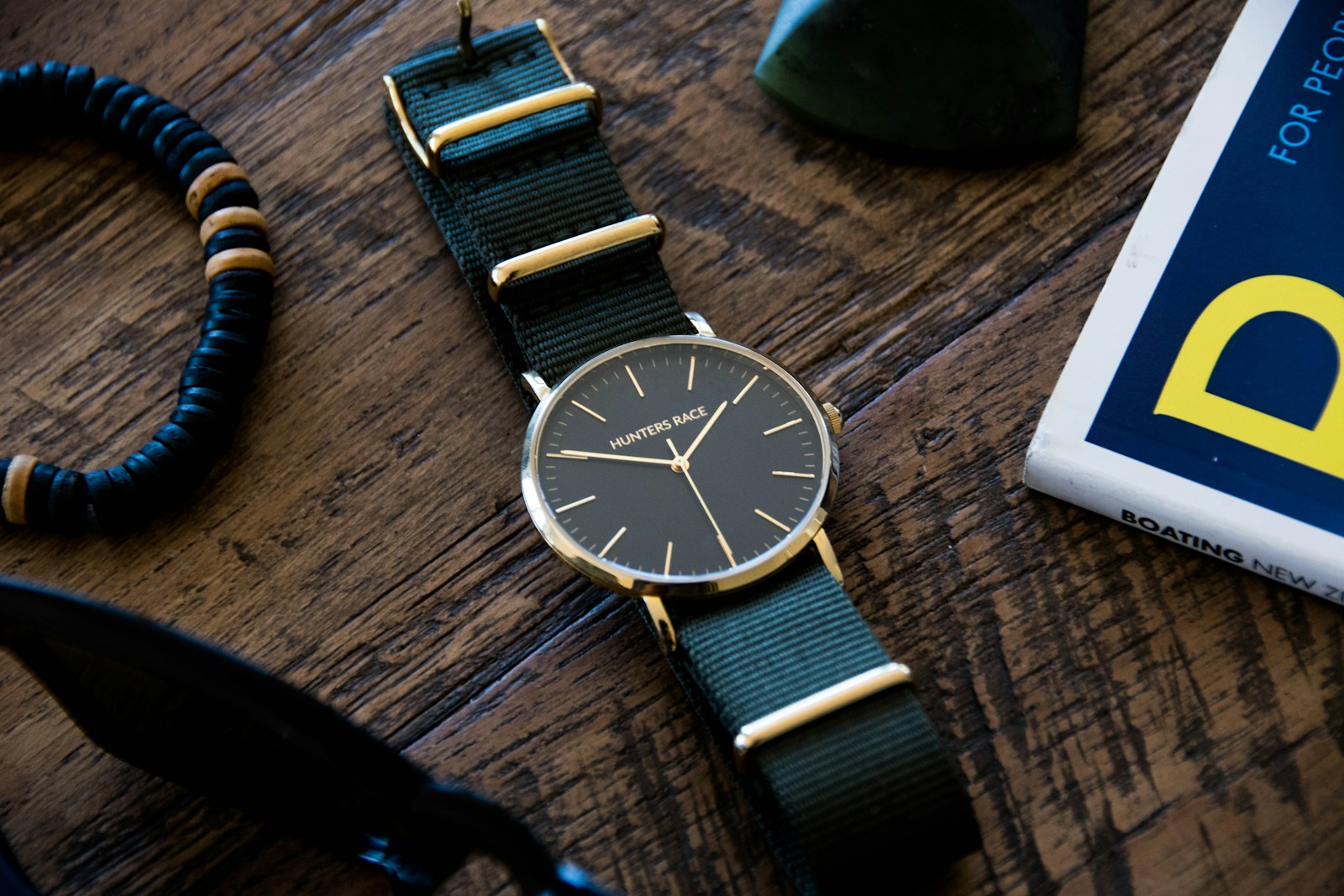
reloj

watch
A small timepiece intended to be carried or worn by a person, typically a wristwatch.
Example sentences using: reloj
Este es mi reloj.

This is my watch.
This sentence is an elementary demonstration of possessive pronouns, where 'mi' signifies 'my'. It's also an introduction to noun sentences, where 'reloj' translates to 'watch'.
El reloj está roto.

The watch is broken.
This simple sentence exhibits an adjective 'roto' meaning 'broken'. It shows how to express a state or condition of a noun 'reloj' in a sentence.
Voy a comprar un reloj nuevo.

I'm going to buy a new watch.
This sentence exhibits the future activity tense with the phrase 'voy a' (going to) and introduces the term 'nuevo' which implies 'new'.
¿Puedes darme la hora del reloj?

Can you give me the time on the clock?
This interrogative sentence models a polite request with the expression 'Puedes', meaning 'can you', along with the concept of 'giving time' in Spanish.
Mi reloj no funciona.

My watch doesn't work.
This sentence uses a negative phrase 'no funciona' to indicate that something isn't working. The word 'funciona' translates as 'work' or 'function'.
Quiero un reloj para mi cumpleaños.

I want a watch for my birthday.
This sentence includes a verb 'quiero' meaning 'I want', followed by an objective 'reloj' and prepositional phrase 'para mi cumpleaños' expressing wish for a future event.
El reloj está en la pared.

The clock is on the wall.
This sentence demonstrates the use of prepositions, particularly 'en' which translates to 'on'. 'Pared' translates to 'wall'.
Es la una en mi reloj.

It's one o'clock on my watch.
This sentence shows how to express time using 'es la una' for 1 o'clock. Also, it teaches to couple time telling with personal objects like 'mi reloj'.
El reloj de pulsera es de plata.

The wristwatch is silver.
This sentence demonstrates the use of noun modifiers. 'De pulsera' modifies 'reloj' to indicate the type of watch. 'De plata' describes the material.
El reloj está diez minutos adelante.

The clock is ten minutes ahead.
This sentence beautifully explains that Spanish uses 'adelante' after a number 'diez' to indicate 'ahead' in terms of time.